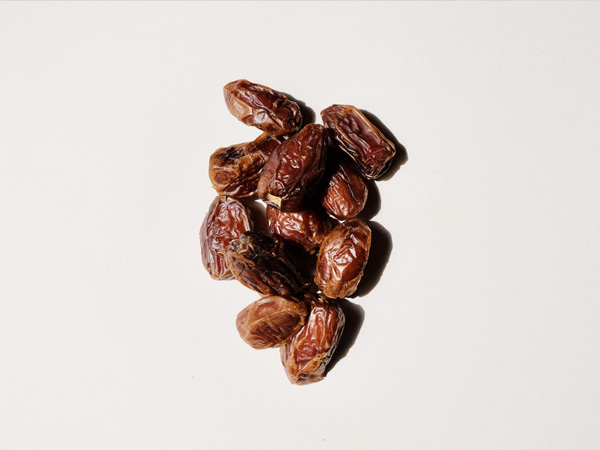Just In
- 6 hrs ago

- 6 hrs ago

- 10 hrs ago

- 16 hrs ago

Don't Miss
- Finance
 FREE, FREE, FREE! 3:1 Bonus: Pharma Stock Hits Back-To-Back Upper Circuits; 500 Shares To Earn Rs 1,69,500
FREE, FREE, FREE! 3:1 Bonus: Pharma Stock Hits Back-To-Back Upper Circuits; 500 Shares To Earn Rs 1,69,500 - Sports
 Manchester City vs Chelsea LIVE Streaming: Where to Watch FA Cup Semi-Final in India, UK, USA and Other Countries
Manchester City vs Chelsea LIVE Streaming: Where to Watch FA Cup Semi-Final in India, UK, USA and Other Countries - Movies
 Pukaar Dil Se Dil Tak Promo: Sayli Salunkhe Impresses In First Video Of Sony TV Show, Details About Her Role
Pukaar Dil Se Dil Tak Promo: Sayli Salunkhe Impresses In First Video Of Sony TV Show, Details About Her Role - News
 Chinese President Xi Jinping Orders Biggest Military Reorganisation Since 2015
Chinese President Xi Jinping Orders Biggest Military Reorganisation Since 2015 - Education
 Exam Pressure Does Not Exist; Studying Punctually is Crucial; Says Aditi, the PSEB 2024 Topper
Exam Pressure Does Not Exist; Studying Punctually is Crucial; Says Aditi, the PSEB 2024 Topper - Automobiles
 Suzuki Swift Hatchback Scores 4 Star Safety Rating At JNCAP – ADAS, New Engine & More
Suzuki Swift Hatchback Scores 4 Star Safety Rating At JNCAP – ADAS, New Engine & More - Technology
 Dell Introduces AI-Powered Laptops and Mobile Workstations for Enterprises in India
Dell Introduces AI-Powered Laptops and Mobile Workstations for Enterprises in India - Travel
 Journey From Delhi To Ooty: Top Transport Options And Attractions
Journey From Delhi To Ooty: Top Transport Options And Attractions
Why Should You Consume Dates Soaked In Milk?
Food combinations come under an extremely popular diet and eating rules with amazing health benefits. Among such food-combination diets, the benefits of eating dates with milk or particularly, eating dates soaked in milk are well documented in some studies.

Dates (Phoenix dactylifera L.) are dried fruits and a good source of vital antioxidants, mainly phenolics and carotenoids. They are packed with an abundance of nutrients like iron, potassium, selenium, magnesium, copper, vitamin B-complex, vitamin C, dietary fibre, protein, along with high energy and natural fruit sugars like fructose and glucose. [1]

On the other hand, milk is rich in calcium, riboflavin, iron, vitamin B12, zinc, phosphorus, potassium, vitamin A, magnesium and vitamin D. A study has shown the presence of around 44 nutrients in milk that includes around 18 amino acids, 9 minerals, 10 vitamins, healthy fats, proteins and carbohydrates. [2]
In this article, we will discuss some of the effective health benefits of dates soaked in milk. Take a look.
1. Improve haemoglobin count
Iron is a vital compound found in dates, which is also vital for the production of haemoglobin, a protein in red blood cells. In a study, it was found that when dates soaked in milk and then boiled for a period of time, were given to healthy individuals (above 18 and below 55 age people) every morning on an empty stomach, their haemoglobin levels increased in a period of 10 days. [3] This combination may help treat related problems like anaemia.
2. Benefit pregnancy
According to a study, dates soaked in cow's milk can act as a health promoter for pregnant women and benefit them and their foetus in many different ways. The study mentions that consuming dates and milk mixture regularly can help generate bones and blood of the foetus.
All you have to do is soak 5-6 dates in fresh cow's milk overnight. Then, the next morning, grind the mixture, pour in a glass and add a pinch of cardamom powder along with a teaspoon of honey. [4]

3. Help get rid of wrinkles
Dates and milk contain an abundance of antioxidant compounds which are helpful in removing signs of ageing like wrinkles. Dates, especially, have anti-ageing, soothing and regenerative properties, which is excellent for the skin. Another aspect is, studies say that vata aggravations may cause early ageing. [5] Therefore, dates (soaked or cooked) being a vata-pacifying diet, can help balance vata and keep ageing symptoms away. Avoid eating dried dates as they may work oppositely. [6]

You can soak a few dates in milk overnight; make a thick paste the next morning with added honey. Apply on the face for 15-20 minutes, wash and pat dry. Do it once a week.
4. Boost stamina
100 g of dates provide around 15 per cent of the total daily recommended energy [7] while milk provides around 9.1 per cent of the total recommended supply of energy. [8] Soaking dates in milk can act as a nutrient-dense food and increase energy levels and boost the stamina of a person.
Caution, some studies say that take dates with milk only if your 'pitta' is good to avoid their adverse effects.
5. Improve fertility
Dates soaked in milk may help promote both male and female fertility. This could be due to the presence of phytochemicals compounds in them which could help improve fertility problems in both such as increasing sperm production, protecting testicular function, helping in the formation of mature female eggs and their quality and helping in implantation. [9] This powerful combination can also help increase the libido in men and women of all ages.
Soak a few dates in goat milk overnight. Grind them the next morning, add cardamom and honey and consume.

Other Unproven Benefits Of Dates And Milk
- May help clear phlegm and treat prolonged cough. Boil dates in milk and consume.
- May help treat insomnia. Consume a few dates with warm milk.
- May help reduce blood pressure. Eat dates soaked in milk for around 30 minutes and consume them before meals.
- Eating soaked dates in milk can be good for nursing mothers to improve the production of breast milk.
- May help strengthen bones and prevent bone-related diseases.
- May help improve the functioning of the nervous system.

Why Soak Dates Only In Milk?
Dates are rich in iron while milk is packed with calcium. Studies say that calcium can inhibit the absorption of iron in the body, thus causing their deficiency. Taking dates and milk at least an hour difference can efficiently help in the absorption of calcium from milk and iron from dates, maintaining the levels of both these essential nutrients in the body. [10]
However, the study has also pointed out that this effect is for a short duration and the adaptation of both may occur with time.
To avoid the difference in absorption, the best way is to soak dates in milk. This will not only help soften the hard and dry pulp of dates, but will also infuse both their nutrients and prepare one of the best healthy drinks for people of all ages.
How To Prepare
Ingredients
- 4-5 dates
- A glass of lukewarm milk
- Cardamom and honey (optional)
Method
- Soak dates in lukewarm milk overnight.
- Next morning, remove the seeds and blend the mixture.
- Add cardamom and honey for added taste, if preferable.
- Drink on an empty stomach every morning before a meal.
To Conclude
Use the best quality of dates such as Medjool and Iranian dates to get maximum benefits. Also, make sure to wash the dates properly before soaking them. It is always good to check with a dietician first.
-
 healthWhy Do Muslims Use Dates To Break Fast In Ramadan? Answer Lies In History, Spirituality And Modern Science
healthWhy Do Muslims Use Dates To Break Fast In Ramadan? Answer Lies In History, Spirituality And Modern Science -
 yoga spiritualityMathura Holi 2024 Dates, Schedule: When Is Lathmar Holi In Mathura, Barsana, Brij, Vrindavan?
yoga spiritualityMathura Holi 2024 Dates, Schedule: When Is Lathmar Holi In Mathura, Barsana, Brij, Vrindavan? -
 healthAre Dates Good For Cholesterol? How Many Should You Eat A Day?
healthAre Dates Good For Cholesterol? How Many Should You Eat A Day? -
 healthRamadan 2023: Can You Eat Dates In Summer?
healthRamadan 2023: Can You Eat Dates In Summer? -
 festivalsOctober 2022: Auspicious Dates With Muhurat For Housewarming, Weddings, Purchasing Vehicles And More
festivalsOctober 2022: Auspicious Dates With Muhurat For Housewarming, Weddings, Purchasing Vehicles And More -
 festivalsAuspicious Hindu Wedding Dates In December 2021 For 'Shubh Vivah'
festivalsAuspicious Hindu Wedding Dates In December 2021 For 'Shubh Vivah' -
 diabetesIs It Safe For Diabetics To Consume Dates?
diabetesIs It Safe For Diabetics To Consume Dates? -
 festivalsNavratri 2019: Dates, Muhurat Timings And Significance
festivalsNavratri 2019: Dates, Muhurat Timings And Significance -
 bollywood wardrobeDate Night And No Dresses? So What! Wear A Sari Like Shruti Haasan And Woo Your Date
bollywood wardrobeDate Night And No Dresses? So What! Wear A Sari Like Shruti Haasan And Woo Your Date -
 nutritionWorld Blood Donor Day 2018: Banana And Date Smoothie For Increasing Iron In The Body
nutritionWorld Blood Donor Day 2018: Banana And Date Smoothie For Increasing Iron In The Body -
 nutritionWorld Blood Donor Day 2018: Benefits Of Spinach, Banana, And Date Smoothie For Boosting Iron
nutritionWorld Blood Donor Day 2018: Benefits Of Spinach, Banana, And Date Smoothie For Boosting Iron -
 nutritionWhat Are The Benefits Of Eating Dates In Summer?
nutritionWhat Are The Benefits Of Eating Dates In Summer?


 Click it and Unblock the Notifications
Click it and Unblock the Notifications



